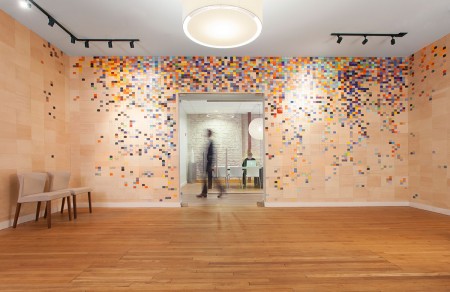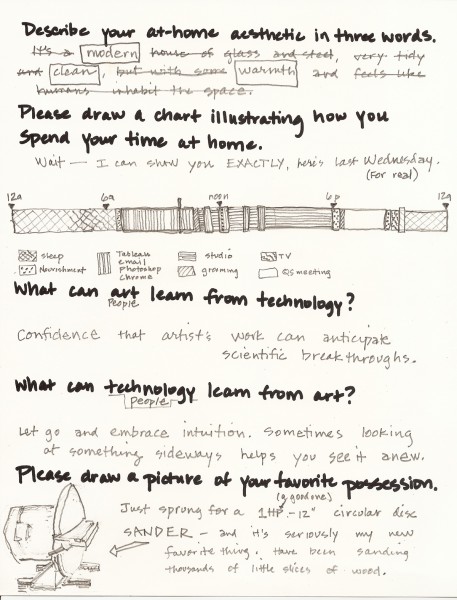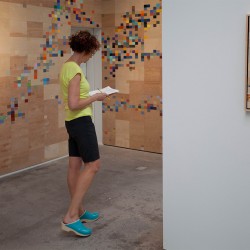A data portrait of a company
/This is a data portrait of a company. A digital company that makes some of the most talked about mobile apps in the world, and here they are in an historic building in downtown Austin. Thirteen23 asked me to make the experience of stepping out of the elevator into their lobby, something special that instantly communicated the simplicity, warmth and human-ness of their design sensibility. Set in an incredibly large open space, the place is strangely quiet except for occasional laughter, ok…sometimes really loud laughter. Turns out much of the collaboration between developers and designers is in chat rooms, that they hold open on their massively large mac screens through-out the day.
 Lickety-split Doug Cook sends out a ‘bot’ to capture meta-data on when, size, who and which project for thousands of chat sessions. We decide on 30 days of chatroom metadata. Using wood, italian laminate samples from Abet Laminati, and lasercut dowel holes…all was hand built and installed by ‘me’. Developers are all shades of warm orange and yellow, designers are shades of blue, project manager shades of purple, management is charcoal grey. The 65 feet of lobby represents 24 hours and 30 days of over 6500 chat sessions which are ‘raining’ down, with the shortest messages near the ceiling and the longest near the floor. It tells the story of how these talented people interact as a team. See more pics here.
Lickety-split Doug Cook sends out a ‘bot’ to capture meta-data on when, size, who and which project for thousands of chat sessions. We decide on 30 days of chatroom metadata. Using wood, italian laminate samples from Abet Laminati, and lasercut dowel holes…all was hand built and installed by ‘me’. Developers are all shades of warm orange and yellow, designers are shades of blue, project manager shades of purple, management is charcoal grey. The 65 feet of lobby represents 24 hours and 30 days of over 6500 chat sessions which are ‘raining’ down, with the shortest messages near the ceiling and the longest near the floor. It tells the story of how these talented people interact as a team. See more pics here.





